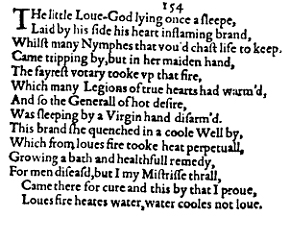In addition to the ‘motivated forgetting’ that has been bothering me since this post, I have been thinking a bit about the other reasons why we forget. These are listed in that post as well, but are probably worth repeating. It’s widely accepted that we forget things because memory traces decay over time, because new memories interfere with old ones, and because memories can be linked to physical circumstances. Literary interest in forgetting turns to these sometimes, as writers explore the strange counter-intuitive need to forget things in the course of reading or watching.
*
Samuel Beckett seems a rewarding and taxing case in this respect as in many others. I often think of Beckett, nearly as often as I think of Shakespeare, in these cognitive contexts. I am . I don’t think it’s because they are the only writers I can ever remember. I think it’s because they both use the dramatic form to undertake particularly searching examinations of the ways we think.
In his play Happy Days, for example, I think that we see…
INTERFERENCE in the repetitions of actions and phrases, overlapping one another, sapping meanings, finding new meanings, not allowing things to settle.
DECAY OVER TIME actually thematized within the play, and discussed, but also felt by the audience as the things that are distinctive about the play seem to enervate as it develops.
THE REMOVAL OF PHYSICAL CONTEXT as Winnie is buried much more deeply in the second act, changing the configuration of body and stage that has become, perhaps, a focus for the memorability of things in the first act.
All these things are true of other Beckett plays too – Waiting for Godot and Krapp’s Last Tape come to mind. As in the Shakespearean cases before, the point is not straightforwardly that Beckett’s play causes its readers to forget things as it goes on. However, in these strange play-worlds it seems fitting that an element of self-negating forgettability complements their combination of despair and resilience. They may inhibit their own lasting impressions, offering a richly different theatrical experience.
